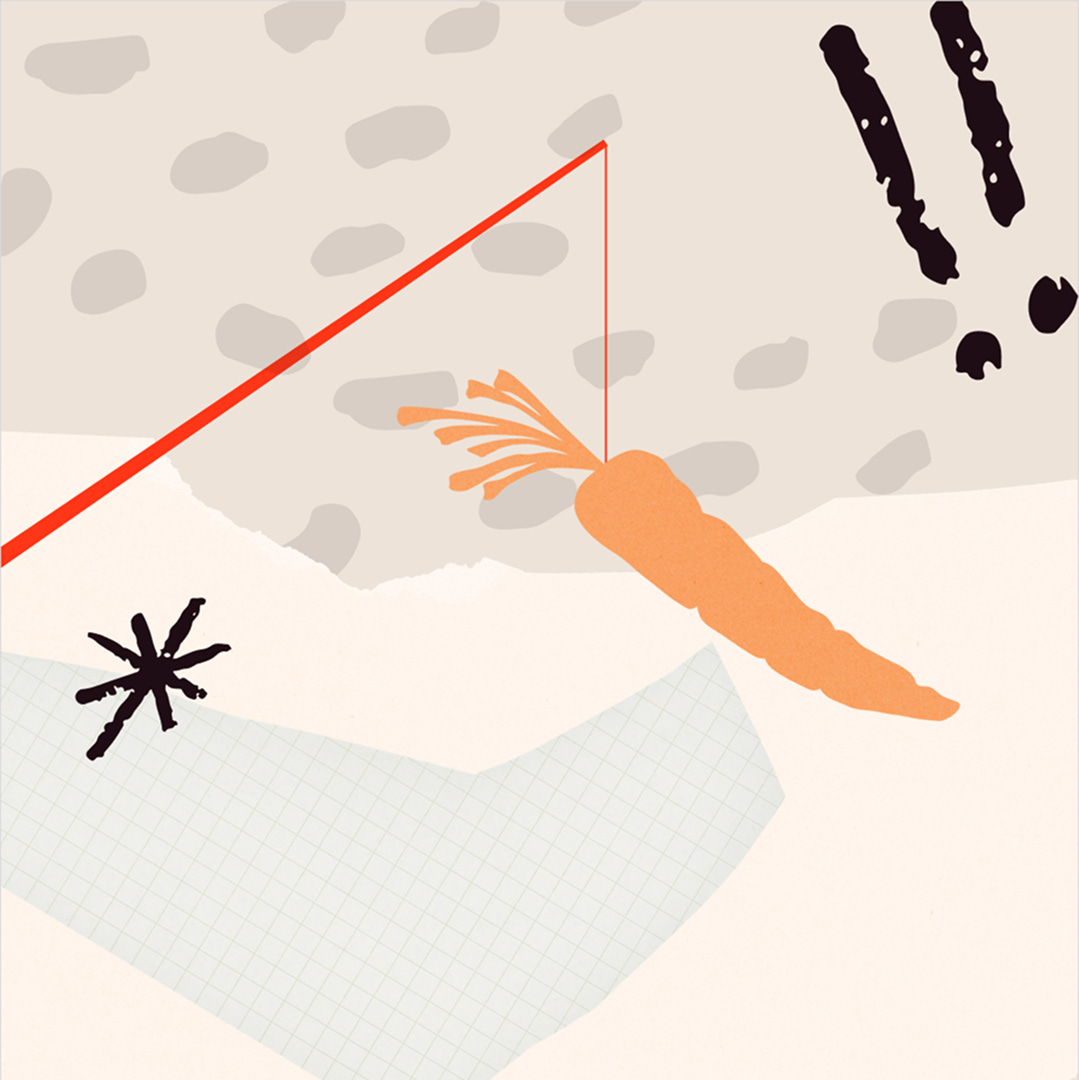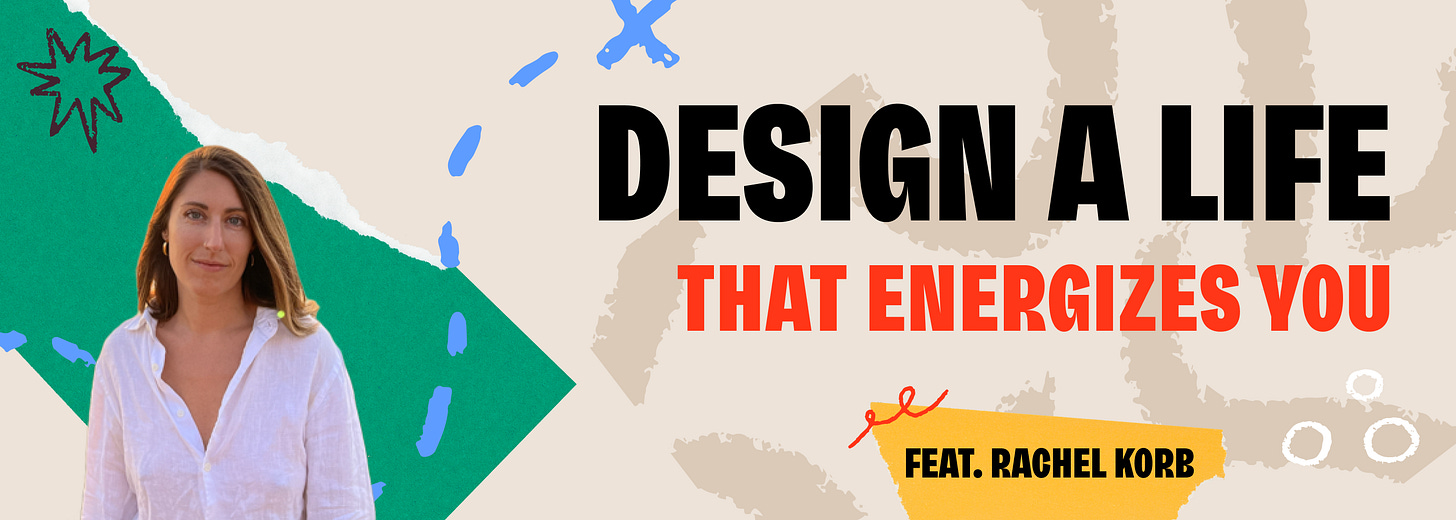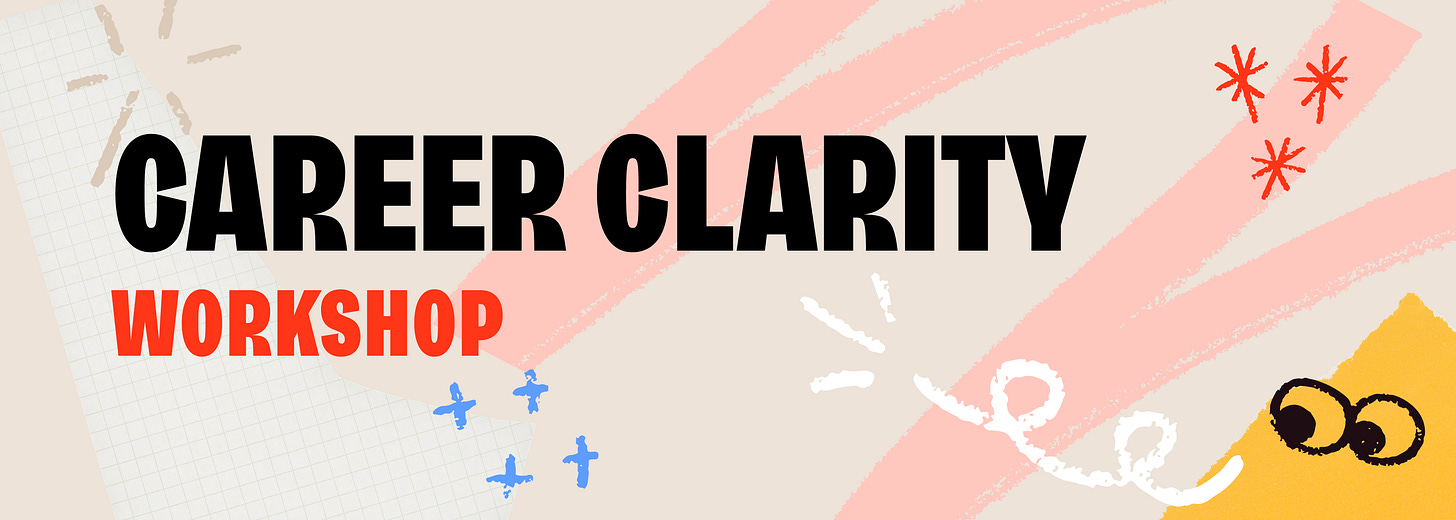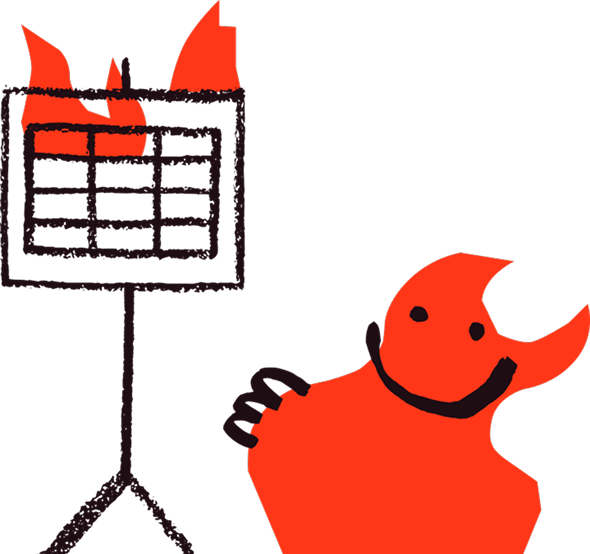It’s time to ditch discipline
Compassionate productivity, self-devotion, and other career magic
Hi there! You’re reading the Bonfire newsletter from Kevan Lee & Shannon Deep. Each week, we highlight brand, marketing, and creative learnings from our experience as in-house marketers turned agency owners who think a lot about creativity, our relationship to work, and how all of that impacts our identities. We’ll also feature insights from our digital community of super smart folks (which you’re welcome to join).
Wishing you a great week!
CW: Superficial discussion of weight and dieting.
Do you know why dieting doesn’t work?
I don’t mean that restricting your calories doesn’t make you lose weight. Rather, I mean do you know why the practice of dieting, in the long view, almost always ends with people regaining more weight than they lost?
There are several complex reasons, but the most salient ones are psychological rather than physical.
Dieting doesn’t work because behavior change without identity change doesn’t last. And diets don’t change our identities.
Our brains like us to act in accordance with our self-concept—the set of beliefs we hold to be true about ourselves. Those beliefs can be positive—“I am an intelligent person”—or they can be negative—“I am a terrible cook”—but the kicker is that our brain would like us to act in alignment with those beliefs regardless of whether they’re good for us or true!
That means when you believe you’re a terrible cook and you burn dinner, on some level your brain is like, “Oh, hell yeah! We were right!” And the belief gets stronger.
You can probably see where this is going vis à vis diet culture. We believe that we have unhealthy eating and exercise habits even though we want to change them, and so acting against those beliefs by eating healthy and exercising actually erodes our energy and stresses us out, making the diet unsustainable!
According to the same Scientific American article linked above, making conscious, healthy choices raises stress hormone (cortisol) levels in people trying to diet. But when instead we act in line with our (negative) beliefs, we don’t have to think, consider, worry, remain vigilant—so it’s no wonder that we will almost always return to old habits when our underlying beliefs don’t change.
We’re told that diets and other habit changes simply require discipline—obedience to a rule/authority with punishment as the consequence. So if we can’t change our habits, then we must just lack discipline. (“I lack discipline” is an interesting belief to have about yourself, isn’t it?)
But then take a look at this:
“In a 2014 study, [patients with unhealthy eating habits] received compassion-focused therapy—an approach aimed at reducing feelings of shame and improving self-esteem. Over the 12-week treatment, women who exhibited greater improvements in self-compassion and reductions in body shame were also more likely to develop better eating habits.”
They changed the underlying beliefs about themselves. Which allowed their behavior change to occur naturally and sustainably.
So…why are we talking about this? No, we’re not pivoting the newsletter to be about diet and exercise. (And let’s all be grateful for that.) But these psychological mechanisms apply not just to healthy habits, but also to any other kind of motivation or behavior change that supposedly requires discipline.
This is relevant to creative projects, to learning objectives, to entrepreneurial ideas…anything that you need concerted effort to pursue and accomplish. Often, these things, while genuinely important to us, get backburnered, dropped, fall by the wayside of the deeper grooves of habit and attention in our lives.
It’s easy to tell ourselves that we just lack discipline. If only we were harder on ourselves, if only we pushed ourselves more, weren’t so lazy, didn’t procrastinate so much, we could be more productive on the things that really matter to us.
But…no.
If we substitute self-discipline for self-devotion, and obedience for compassion, we’ll get a lot further.
Here’re some thoughts on how.
Discipline vs. devotion
We’ve been sold the idea that self-discipline is what separates the good from the great, the try-hards from the real achievers.
Self-discipline might help you get things done. But self-devotion helps you be the person who does them.
Self-devotion is one mechanism that—over time and with consistent application—can change those underlying beliefs and bring our identities in line with our pursuits. It’s the ongoing, intentional practice of honoring your own needs, values, desires, and growth—and designing your life and actions in alignment with them.
Self-discipline says:
Do it no matter what.
There are no good excuses.
Anything less than 100% doesn’t count.
You only have yourself to blame.
You win or you fail.
Self-devotion asks:
Why does this matter to you?
What do you actually want?
What are all the various ways you might achieve what you want?
Is this the right time, pace, or way for you to do this?
What can you learn from this to take into your next attempt?
Self-devotion doesn’t tell you what to do; it invites you to try something. It allows for imperfection, non-compliance, wobbles and backsteps without coding that as failure. When you’re devoted to what you’re doing—when your work actually reflects who you are and what you care about—you don’t need to fight yourself to do it.
Self-devotion also, critically, helps you identify what you actually want. Self-discipline might get you a promotion, but self-devotion might reveal that what you really want is to be respected by your partner’s family who doesn’t value your job title. (Whoops!)
Not gonna lie: Self-devotion walks the path a lot more slowly than self-discipline. But you might actually make it to the end, and with your spirit intact to boot.
Ok, so what now? Enter: Compassionate productivity
When you’ve practiced self-devotion and you have a clearer idea of what you want, and a more generous view on what you might do to pursue those things, there’s still the question of how you go about translating that desire into action. (Ditching discipline doesn’t mean ditching doing stuff!)
For that, we return to the idea of the self-concept and the following super key belief you need:
“I do what I say I’m going to do.”
And when you have that core belief, you don’t need to force, negotiate, wheedle, and grit your teeth through your life. You believe it to be true about you, so you act in accordance with it!
But if you want to build the belief “I do what I say I’m going to do” into your self-concept, you have to start small.
There’s an executive coach and TikTok creator named Casey van Neumann who talks about one effective strategy to accomplish things in a devoted vs. disciplined way: compassionate productivity.
Compassionate productivity says:
You are not a machine.
Your worth is not measured in output.
Your best work comes from a place of clarity, not coercion.
Rest is not a reward. It’s part of the process.
Sounds pretty good!
So practically speaking, to practice compassionate productivity, you just need to explicitly commit to what you’re already doing.
This means if your goal is to, say, work on your creative project three evenings a week but you can only seem to manage once per week, make it your explicit goal to work on it once a week. If you’re trying to take a walk after dinner five times a week but you can only manage three, commit to three times a week.
When you do this, even though you’re not making “progress,” you reinforce the story in your brain that you do what you say you’ll do. Your brain is building the belief that you achieve the goals you set for yourself, and it doesn’t matter that they’re the things you’re already doing! From there, you can slowly stretch the goal—write twice a week if your kid goes to bed on time; walk four times a week after dinner when the weather is nice, etc.
Give it a try for a couple months! We’d love to hear about how it works for you.
Some thought-provoking* questions to take away:
Where are you relying on self-discipline to push through something that may not actually align?
What would devotion to your creativity look like right now? What about devotion to your mental or emotional wellness?
What would it mean to be productive with compassion for your body, your season, your brain?
What do you want your work to feel like?
I feel most devoted to [BLANK] right now, and that makes me want to [BLANK].
*Bonfire is not responsible for any crash-outs resulting from the answers to these questions!
Want more like this? Join us in Campout.
If these questions resonate, Campout, our digital community, is where we’re unpacking all of that, together. We’re less interested in “crushing goals” and more curious about what it looks like to build lives and careers we actually want to live inside of.
Join us for great events like:
An energy mapping how-to with Rachel Korb on Tuesday, July 29, at noon EST.
You’ll leave with:
✨ A personalized energy map and body awareness toolkit
✨ Your top values, embodied and actionable
✨ A draft of your ideal day, synced with your real-life rhythm
✨ A mindset shift from performance to presence
And our upcoming Career Clarity Workshop on Wednesday, August 6 at noon EST.
We'll guide you through a gentle exploration to help you notice what genuinely lights you up (with no pressure to have it all figured out).
You'll leave with:
✨ Clarity on what topics and work naturally draw you in
✨ A simple reflection toolkit you can use anytime
✨ Insights from fellow creatives on their own curiosity discoveries
But wait! There’s more…
Wanna hang out?
There are only 2 spots left for our fall retreat! Come join us in the French countryside from September 27th - October 3rd for a week of creativity and career exploration.
Wanna be friends?
If you love this newsletter and wish it were more interactive, you’re in luck! Join us over in Campout, our digital community for creative marketers and the creative curious.
Wanna work with us?
If you need help with brand strategy and storytelling, fractional brand and marketing leadership, and bringing your brand strategy to life in impactful ways, send us an email at hello@aroundthebonfire.com to get in touch.
As always, you can find us on LinkedIn, Instagram, and Threads.







